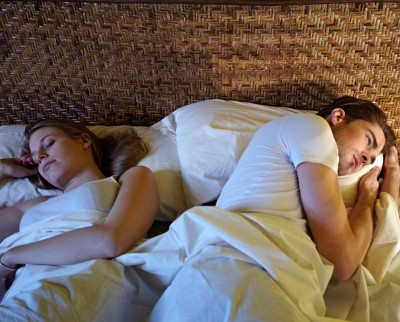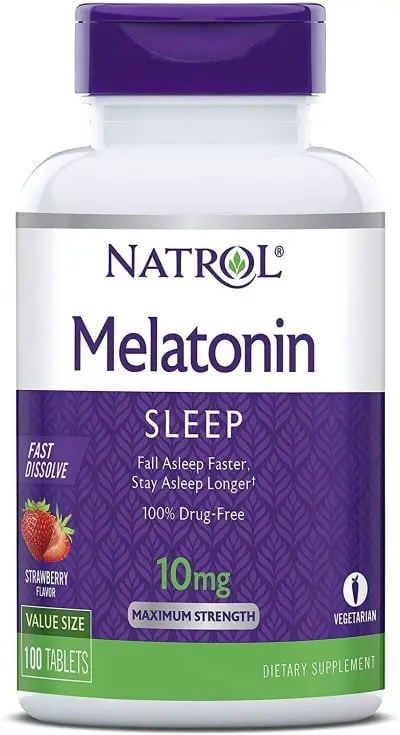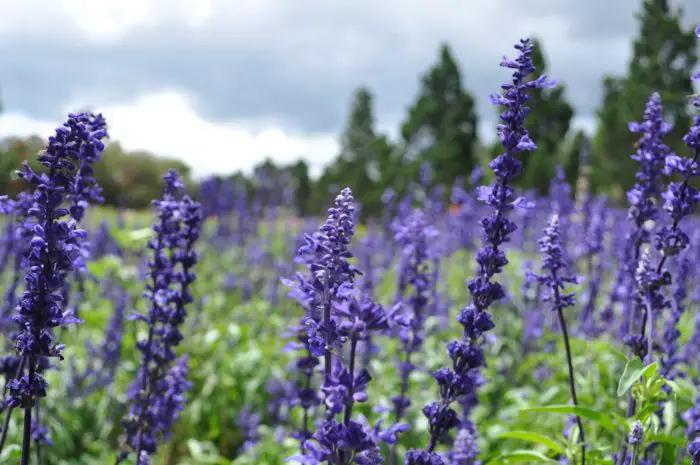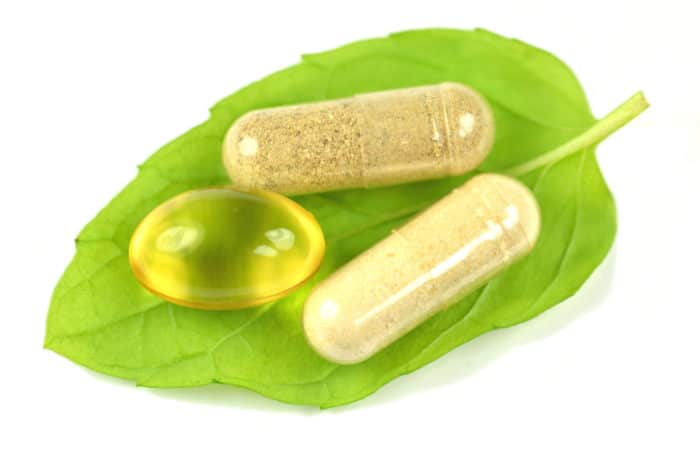
Can CBD oil make you feel more awake and cause insomnia? – What we know and 5 things to try
By Jason Wooden, PhD | July 17, 2022
If you’re curious whether CBD oil can cause insomnia, there’s growing evidence that higher dosages promote sleep while lower dosages promote wakefulness. Besides too low of a dose, other reasons it may keep you awake include poor product quality, individual differences, and interactions with other substances.
In this article, we’ll talk about:
1) You’re not the first
2) What the research says
3) Other reasons CBD is keeping you wake
4) Practical remedies
5) Natural alternatives to CBD
You’re not the first to notice that CBD oil is keeping you awake…
If you’re finding that CBD oil actually makes you feel more awake, you’re not the first to ask if CBD can cause insomnia.
Search online and you’ll find individuals in forums seeking help because their CBD is keeping them up.
Some say they have to avoid having it too close to bedtime while others have had to stop taking it entirely.
Interest continues to grow in using CBD as a natural alternative for a variety of ailments. It’s currently being used for anxiety, chronic pain, and insomnia.
According to a SingleCare survey, about one in three Americans have used CBD oil or another CBD product at least once.
That’s a lot of people.
I recently started using it as an alternative to my pain meds to help my sleep. (You can read about my experience here.)
Regardless of why you started taking CBD oil, it can be frustrating if it’s ruining your nights. More so if you’re taking it for insomnia.
As to why it’s happening to you, it’s hard to say since there are so many possible causes. Also, most substances used medicinally have possible side effects for at least some people depending on how they’re used.
Nonetheless, we’re going to take a look at what we know and what your options are if you find that CBD oil is keeping you up at night.
What the research says about CBD, alertness, and insomnia
CBD, along with THC, is one of the better known active substances derived from the cannabis plant. Even though both are cannabinoids, they interact with the brain in slightly different ways.
THC is the main psychoactive compound that gives people a “high”. CBD is made from hemp, a type of cannabis plant that contains very low levels of THC.
It’s important to keep in mind that research on CBD is still ramping up. So, it’s not as well-studied as other natural actives used for health and wellness.

The good news is that we are learning a lot from the studies done so far about the effects of CBD on alertness and sleep.
While early research was contradictory, there’s growing research confirming CBD’s usefulness for insomnia. It’s believed to help sleep because of it’s influence on anxiety and pain, two major underlying causes of poor sleep.
(A small study with 27 healthy volunteers found CBD had no difference on how long it took them to fall asleep and how well they slept.)
Even though more rigorous studies need to be done, there’s promising preliminary results suggesting cannabinoids may be helpful for other sleep disorders besides insomnia. The list includes restless leg syndrome, REM sleep disorder, and sleep apnea.
We are also learning that CBD is biphasic. It affects the body one way at a lower dose and the opposite way at a higher dose.
CBD can make some people feel more alert when taken at low or moderate doses while higher dosages are associated with sleep promotion.
A study in a Colorado psychiatric clinic tracked 103 patients who were taking CBD for anxiety and sleep complaints. At the one month check-in, 66% of the patients reported an improvement in sleep while a quarter of them said their sleep was worse.
The study used CBD dosages ranging from 25–175 mg. They found that 25 mg was most effective for anxiety and that higher dosages were needed for troubled sleep.
Nonetheless, this dosage effect explains why CBD is like coffee for some people and keeps them awake at night.
Other reasons why CBD is keeping you awake at night
Taking the wrong dose isn’t the only reason why your CBD oil is causing insomnia. There could be other things at play since lots of factors affect what happens in the body when you use a product.
Among the things to consider are:
Poor quality product
Unfortunately, it’s still a bit of the wild west when it comes to CBD products. It’s hard to know for some products how much CBD you’re actually getting in a dose and how pure it is.
A 2020 FDA survey of 102 CBD products found that 18 had less than the CBD amount indicated and 38 contained more than 120 percent of the amount of CBD indicated. They also found that 49% of the products contained THC.
If the brand you’re using doesn’t have good quality control, you could be unknowingly taking too low of a dose for sleep support.
Individual differences
Everyone’s body is different. That’s why some people can fearlessly consume caffeine in the evening while others can’t sleep if they have after mid-day.
We just beginning to learn about how your genetics can affect what CBD does once it’s in the body.
Also, other things going on in your body such as a health complication could affect what CBD oil does when taken.
Interactions with other substances
There’s still a lot to be learned about what happens when you take CBD and other substances at the same time, including whether there’s an increase in side effects or CBD affects the action of other medications. Learn more
What to try if CBD is keeping you awake at night
If you’re looking for a CBD oil that doesn’t make you tired, there’s nothing specifically designed that way. However, there are some basic things you can do that may help:
1) Make sure you’re using it correctly
For starters, double check that you’re using your CBD product as suggested – i.e., taking the right dose at the recommended time.
2) Change when you take it
As I mentioned earlier, some people find they have to avoid taking it within 2 hours of bedtime.
3) Try a different brand
I’ve already mentioned how widely CBD products can differ in quality. You can try getting your CBD from a different company.
Some things to look for are:
- A well-known and reputable company with minimal complaints
- 3rd party testing done to verify CBD amounts and purity
- A certificate of analysis which you can review
If you’re looking for options, here’s a high quality provider I use which I recently reviewed here.
4) Try a different formulation
You can now find CBD formulations designed to more specifically support sleep. Some of things added include melatonin and CBN, another cannabinoid thought to be helpful sleep.
5) Consult with someone
Since there are so many things that could be effecting what CBD does to your body, chatting a with a health specialist can be helpful. Your doctor can advise you about possible safety concerns if you’re taking it with medications.
Also, it’s worth talking to someone knowledgeable on the use of natural remedies like CBD. An alternative medicine practitioner such as a naturopathic physician can advise you on dosing, proper use, and possible safety concerns.
Other natural sleep aids besides CBD worth a try
Fortunately, CBD isn’t the only game in town when it comes to natural sleep aids for insomnia.
If you’re finding no matter what you do your CBD oil is still keeping you awake, there are other natural actives worth at a try:

Melatonin
A hormone produced by the body that helps control your sleep-wake cycles, synthetic melatonin is one of the most commonly used sleeping aids

Lavender Essential Oils
Extracts prepared from the flowers of the lavender plant have been found to reduce anxiety and promote relaxation

And of course there all the other drug-free things you can to that promote restful sleep:
- Exercise
- Meditation
- Yoga
- Relaxation techniques such as progressive muscle relaxation and visualization
- Music therapy (soothing music and sounds) Learn more
- Tai chi
- Cognitive behavioral therapy Learn more
You may also be interested in:
How I‘m using Joy Organics CBD softgels for pain and better sleep
Can CBD help sleep apnea? – 4 ways it might
Can CBD help with sleepwalking?
4 things to try if CBD is keeping your dog awake
Can you take CBD oil with sleeping pills?
Related:
Natural Sleeping Aids: How they work and how to try them out
Can turmeric help you relax? – What we know and 4 ways to try it out
Sources:
1. “Cannabidiol (CBD): What we know and what we don’t”, 2021, Harvard Health Publishing
2. “CBD User Demographics”, 2021, CBD Choice
3. “A comparison of CBD and THC”, 2019, Medical News Today
4. Potential Effects of Cannabidiol as a Wake-Promoting Agent. Curr Neuropharmacol. 2014 May; 12(3): 269–272.
5. No Acute Effects of Cannabidiol on the Sleep-Wake Cycle of Healthy Subjects: A Randomized, Double-Blind, Placebo-Controlled, Crossover Study. Front Pharmacol. 2018; 9: 315.
6. Cannabinoid therapies in the management of sleep disorders: A systematic review of preclinical and clinical studies. Sleep Med Rev. 2020 Oct;53:101339
7. Biphasic Effects of Cannabinoids in Anxiety Responses: CB1 and GABAB Receptors in the Balance of GABAergic and Glutamatergic Neurotransmission. Neuropsychopharmacology. 2012 Nov; 37(12): 2624–2634.
8. “Safety of low dose cannabidiol”, 2020, Australian Government Department of Health
9. Cannabidiol in Anxiety and Sleep: A Large Case Series. Perm J. 2019; 23: 18-041.
10. Medical Fraud, Mislabeling, Contamination: All Common in CBD Products. Mo Med. 2020 Sep-Oct; 117(5): 394–399.
11. Pharmacogenetics of Cannabinoids. Eur J Drug Metab Pharmacokinet. 2018; 43(1): 1–12.
12. Pharmacogenetic Predictors of Cannabidiol Response and Tolerability in Treatment-Resistant Epilepsy. Clin Pharmacol Ther. 2021 Nov;110(5):1368-1380.
13. “What Are the Differences Between CBD and CBN? Looking at the Benefits, Uses, and Side Effects”, 2021, GoodRx Health
Connect with us:
About Us
Better Sleep Simplified® was founded as a place for you to get clear and well-researched information.
Our goal is to make sure you know about your options so that you take action sooner rather than later.
Check us out on YouTube:
Watch and Learn
Helpful sleep tips, interesting sleep facts and statistics you want to know about
Affiliate Disclosure
This site is a participant in the Amazon Services LLC Associates Program and other affiliate advertising programs designed to provide a means for sites to earn advertising fees by advertising and linking to them.
Important: BetterSleepSimplified.com is for informational purposes only and is not intended or implied to be a substitute for professional medical advice, diagnosis, or treatment. Always consult a physician for sleep and health concerns. See additional information.
